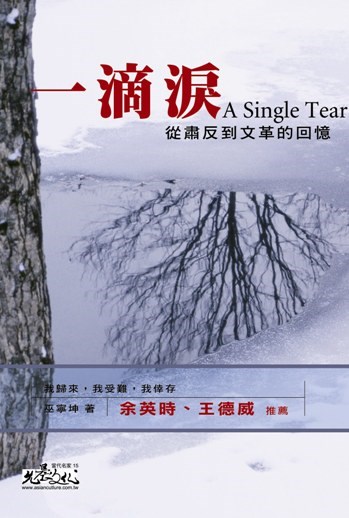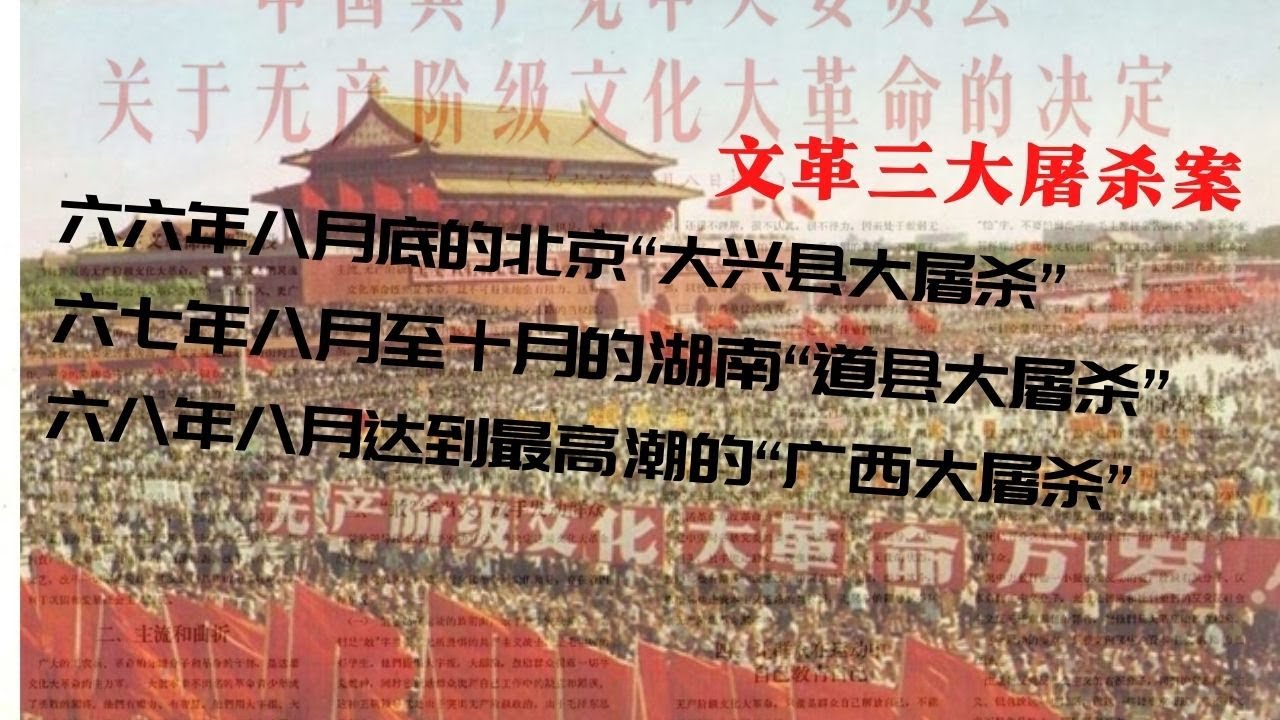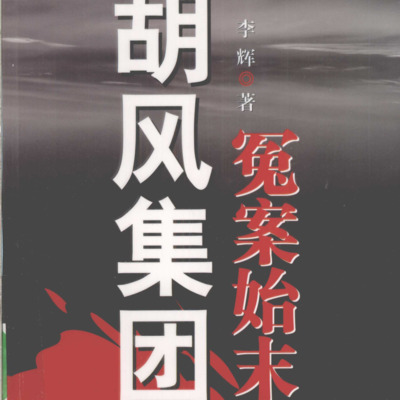
The History of the Wrongful Persecution of the Hu Feng Clique
Li Hui’s The History of the Wrongful Persecution of the Hu Feng Clique is a meticulously researched book that delves into the “Hu Feng Incident,” the first political campaign targeting intellectuals in the Mao era.
The book details how Hu Feng and his followers were accused of organizing an “anti-Party clique” in 1955, leading to decades of political persecution. Through extensive research of archival documents, memoirs of those involved, and interview materials, Li Hui uncovers all aspects of the “Hu Feng Incident”—its origins, development, and its profound impact on the fates of individuals and on society. The book not only explores the complex political factors and ideological conflicts behind the incident but also analyzes the tension and predicament in the relationship between intellectuals and state power during that specific period.
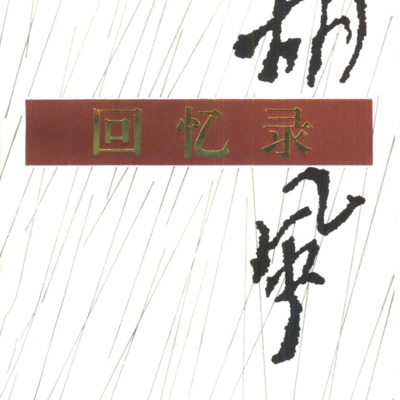
The Memoirs of Hu Feng
The Memoirs of Hu Feng is a work based on the oral accounts of the literary theorist and poet Hu Feng (1902-1985) in his later years, compiled and edited by others. This memoir primarily chronicles Hu Feng’s eventful life, from his early experiences and studies in Japan to his involvement in the left-wing literary movement and his interactions with cultural figures like Lu Xun. It also covers his entanglement in the “Hu Feng Incident” in 1955 and his subsequent decades of political persecution.
The memoir, from a first-person perspective, offers a detailed review of the significant historical events and ideological journey throughout Hu Feng’s life. It not only showcases his dedicated exploration of literary theory and his steadfast adherence to ideas like the “subjective fighting spirit” but also includes a wealth of first-hand materials, such as his correspondence with friends and comrades, and his evaluations of the prevailing literary trends and figures of the time. The book also provides readers with a valuable perspective for understanding the “Hu Feng Incident.”

The Rivers I Have Crossed
(English follows) “Men kechken kéchikler” namliq bu kitab 20-esir Uyghur tarixidiki meshhur herbiy qomandan, 1940-yillardiki Sherqiy Türkistan Milliy Inqilabining ishtirakchisi we “urush qehrimani”, Uyghur xelqi arisida riwayetlik shexs bolup tonulghan polkownik Sopaxun Süwürofning eslimisidur.
Bu eslime yézilip 30 yildin artuq waqit ötkende, yeni aptorning wapatin 10 yil kéyin esli qolyazmidiki bezi sezgür téma we mezmunlarni qisqartish, shallash, qayta-qayta tehrirlik we siyasiy sénzordin ötküzüsh arqiliq, 2011-yili Béyjingdiki Milletler Neshriyati teripidin neshir qilin’ghan.
Melumki, 20-esirning aldinqi yérimida Uyghurlarning siyasiy tarixida yüz bergen ikki qétimliq zor milliy inqilab we uning netijiside Qeshqerde qurulghan Sherqiy Türkistan Islam Jumhuriyiti (1933-1934) bilen Ghuljada qurulghan Sherqiy Türkistan Jumhuriyiti (1944-1949) Kommunist Xitay hakimiyiti tiklen’gendin buyanqi hökümet tarixshunasliqi éytimida siyasiy sezgürliki intayin küchlük, hetta cheklen’gen téma bolup keldi. Bu heqte yézilghan mutleq köp qisim kitab we maqalilar Xitay hökümitining teshwiqat organliri tiklep bergen ramka we éytimda bayan qilindi. Tarixiy shahitlarning siyasiy cheklimilerdin xali eslime we xatiriliri, shundaqla Sherqiy Türkistandiki yerlik xelqning öz tarixiy kechürmishliri toghrisidiki éytimlirining neshir qilinishigha héchqandaq imkaniyet bérilmidi.
Undaqta, 1931-yili Qomuldin bashlinip uzun ötleyla pütkül Uyghur Rayonigha kéngeygen Sherqiy Türkistan milliy inqilabi hemde uning netijiside 1933-yili Qeshqerde qurulghan Sherqiy Türkistan Islam Jumhuriyiti toghrisida shahitlar néme deydu? 1944-yili 9-ayda Ilida partlighan Uyghur we Qazaq xelqining Gomindang hökümranliqigha qarshi milliy inqilabi we uning netijiside 1944-yili 11-ayning 12-küni Ghuljada qurulghan Sherqiy Türkistan Jumhuriyiti toghrisida shu inqilabqa qatnashqan we muhim rol oynighan shexslerning éytimi zadi qandaq? Ikki qetimliq Sherqiy Türkistan milliy inqilabining qatnashchiliri we inqilab shahitliri 1949-yilidin kéyinki Kommunist Xitay istilasidin kéyin qandaq qismetlerge duch keldi, ularning teqdiri qandaq boldi?
Tarixiy shahit we herbiy qomandan Sopaxun Süwürofning bu kitabi yoqiriqi soallargha hökümet meydanidin emes, belki shahitlarning közidin qismen bolsimu jawab béreligen eslimidur. Mezkur eslimining qimmetlik yéri shuki, aptor öz dewrining guwahchisi bolupla qalmastin, belki téximu muhimi 20-esir Uyghur tarixidiki ikki qétimliq Sherqiy Türkistan milliy inqilabining qatnashchisi we shahitidur. Aptor 1939-yilidin kéyin izchil türde herbiy septe xizmet qilghan, jenub we shimalda yüz bergen köpligen urushlarni béshidin kechürgen, shundaqla 1945-yilining bashliridin bashlap, Ilidiki Sherqiy Türkistan Jumhuriyiti milliy armiyeside yoqiri derijilik herbiy wezipe ötigen shexstur. Shundaq bolghachqa, bu eslime bir tarixiy shahitning ré’al kechürmishliri we körgen-bilgenlirining emeliy xatirisi bolush süpiti bilen 1940-yillardiki Sherqiy Türkistan milliy inqilabining ichkiy jeryanliri hemde Xitay-Sowet munasiwitining chégra rayonlardiki murekkep ich yüzini chüshinishte muhim ehmiyetke ige.
Mezkur eslime aptorning baliliq kechürmishliridin bashlan’ghan. Eslimining aldinqi yérimida aptor asasliqi 1931-yili yurti Qomulda partlighan milliy inqilab we uning kélip chiqish sewebliri; inqilabning murekkep we egri-toqay jeryanliri; “Shinjang ölkisi”ning re’isi, militarist Jin Shurénning esker ewetip qozghilangchi yerlik xelqni basturushqa urunushi; militarist Shéng Shiseyning esker bashlap bérip Qomul we Turpanda yerlik xelqlerni qirghin qilghanliqi; Sowét Ittipaqining Mongghuliye arqiliq Xojaniyaz Haji rehberlikidiki milliy inqilab yétekchilirini özige tartmaqchi bolghanliqi; milliy inqilabning kéyinche jenubqa kéngiyip, 1933-yili Qeshqerde Sherqiy Türkistan Islam Jumhuriyiti qurulghanliqi; 1937-yiligha barghanda militarist Shéng Shiseyning Sowét Ittipaqining herbiy küchige tayinip milliy inqilabni qanliq basturghanliqi qatarliq weqeler tepsiliy bayan qilinghan.
Eslimining ottura qismida aptor Sopaxunning 1936-yili Xuangpu Herbiy Mektipining Ürümchi shöbisige oqushqa kirgenliki, 1939-yili mezkur mektep püttürüp Qeshqerde turushluq atliq 31-polkqa teqsim qilin’ghanliqi, shuningdin kéyin izchil halda herbiy septe ofitsérliq wezipisini ötep, nurghun urushlargha qatnashqanliqi, 1945-yili 2-ayda qol astidiki milliy eskerlerni qozghap, Gomindang hökümranliqigha qarshi isyan kötürgenliki we axirida Ilidiki Sherqiy Türkistan milliy armiyesige qoshulghanliqi toghridiki weqeler bayan qilin’ghan.
Eslimining axiriqi qismida asasliqi 1944-yili 9-ayda Ilida partlighan Uyghur we Qazaq xelqining Gomindang hökümranliqigha qarshi milliy inqilabi we uning netijiside Ghuljada qurulghan Sherqiy Türkistan Jumhuriyiti toghriliq inchike bayanlar bérilgen. Aptor eslimide özining qandaq qilip Gomindang armiyesining bir rota komandiridin Sherqiy Türkistan Jumhuriyiti milliy armiyesining polkownik derijilik qomandanigha aylan’ghanliqi; 1945-yili 7-aydin 10-ayghiche milliy armiyening jenubiy yönilish qismigha komandir bolup, Aqsuni azad qilish urushigha qomandanliq qilghanliqi; Kéyinche Iligha qaytip, milliy armiye bash qomandanliq shitabida muhim wezipilerde bolghanliqi; kommunist Xitay istilasidin kéyin milliy armiyening qandaq jeryanlar bilen tarqitiwétilgenliki we özining herbiy septin mejburiy chékindürülgenliki; 1950-yillardin 1980-yillarghiche bolghan jeryanda özi duch kelgen siyasiy bésim we éghir teqipler heqqide inchike melumatlar bergen.
Sopaxun Süwürofning “Men kechken kéchikler” namliq eslime kitabi 1980-yillarning bashliridin bashlap yézilishqa bashlighan we zor sehipilik bir kitab bolghan bolsimu, emma Xitay hökümiti izchil halda neshir qilishqa ruxset qilmighan. Aridin 30 yildek waqit ötkende, yeni aptorning wapatigha 10 yil bolghanda, andin bu eslimining yérimidin köprek qismi neshriyat we teshwiqat bölümining qatmu-qat senzor qilishidin ötüp, 2011-yili Béyjingdiki Milletler neshriyati teripidin axiri neshir qilin’ghan.
Neshirge teyyarlighuchining kitab béshigha yazghan kirish sözige qarighanda, eslide 11 bab qilip yezilghan kitab originalidin 6 bapqa yeqin qismi qisqartilip, nechche yüz betlik mezmun chiqiriwétilgen. Kitabtiki bezi bap-paragraflar Xitay hökümitining “üch wilayat inqilabi” toghrisidiki hökümet éytimigha maslashturulghgan. Bu ehwallar mezkur eslimining esli originaligha, shahitlarning öz béshidin ötküzgen tarixiy kechürmishlirini bayan qilishtiki semimiyiti we chinliqigha dagh chüshürsimu, emma milliy inqilab shahiti we herbiy qomandan Sopaxunning hayat musapisi hemde 20-esirdiki Uyghur siyasiy tarixini chüshünishte melum qimmetke igidur.
This is the memoir of Sopakhun Süwüroff, a renowned military commander in 20th-century Uyghur history, a participant in the East Turkestan National Revolution of the 1940s, and a legendary figure widely known among the Uyghur people.
The manuscript, completed over thirty years ago, was finally published in 2011 by the Ethnic Publishing House in Beijing, a decade after the author’s death, following editorial revisions to certain sensitive content in the original text.
In the first half of the 20th century, two significant national revolutions in Uyghur political history and their outcomes—the establishment of the East Turkestan Islamic Republic (ETIR) in Kashgar in 1933-1934, and the East Turkestan Republic (ETR) in Ili in 1944-1949—have remained highly politically sensitive topics in official Chinese historiography since the establishment of the PRC. Discussion of these events has often been prohibited. Most publications on this history are confined to the official narrative framework and discourse set by Chinese government propaganda institutions. Original records, memoirs by historical witnesses, and accounts by local people about their own historical experiences have consistently been denied opportunities for publication.
So, how do historical witnesses describe the East Turkestan National Revolution? It began in Qomul (Hami) in 1931 and rapidly spread across the entire Uyghur region, leading to the establishment of the East Turkestan Islamic Republic in Kashgar in 1933. What are the accounts of key figures who participated in and played significant roles in the Ili Rebellion in September 1944, and the subsequent establishment of the East Turkestan Republic (ETR) in Ili on November 12 of the same year? What fate did the participants and witnesses of these two East Turkestan national revolutions face after the CCP took control of Xinjiang in 1949?
Sopakhun Süwüroff’s <i>The Rivers I Have Crossed</i> is a rare and valuable primary record that partially answers these questions from the perspective of a witness, rather than the official perspective. The unique value of this memoir lies in the fact that the author is not only a direct participant in history, but also a witness to both East Turkestan national revolutions in 20th-century Uyghur history. From 1939 onward, the author served in the military, experiencing numerous battles across northern and southern Xinjiang. Notably, from the middle of 1945, he held a senior officer position in the National Army of the East Turkestan Republic in Ili. As a result, this memoir, as a firsthand account of historical experiences and observations, holds significant importance for understanding the internal dynamics of the East Turkistan National Revolution in the 1940s and the complex situation of Sino-Soviet relations in the border regions.
The memoir begins with the author’s childhood experiences. The first half provides a detailed account of the national revolution that erupted in Qomul (Hami) in 1931 and its origins; the complex and tortuous development of the revolution; the attempts by Xinjiang warlord ruler Jin Shuren to suppress local uprisings with military force; the massacres of local people in Qomul and Turpan by warlord Sheng Shicai’s troops; Soviet efforts to influence and recruit national revolutionary leaders such as Khojaniyaz Haji through Mongolia; the southward expansion of the national revolution and the establishment of the East Turkestan Islamic Republic in Kashgar in 1933; and the brutal suppression of the national revolution by warlord Sheng Shicai with Soviet military support in 1937, among other major events.
The middle section of the memoir primarily recounts Sopakhun’s enrollment in the Urumqi branch of the Whampoa Military Academy in 1936, his graduation in 1939, and his subsequent assignment to the 31st Cavalry Regiment in Kashgar, where he served as an officer for an extended period and participated in numerous battles. In February 1945, he led his unit in an uprising against Chinese Nationalist (Kuomintang) rule and eventually joined the National Army of the East Turkestan Republic in Ili.
The final section of the memoir focuses on the national revolution of Uyghur and Kazakh peoples against Kuomintang’s rule that broke out in Ili in September 1944, as well as detailed accounts of the subsequent establishment of the East Turkestan Republic in Ili. The author specifically describes his transformation from a company commander in the Kuomintang army to a colonel-level commander in the East Turkestan National Army; his role as the southern front commander of the National Army from July to October 1945, during which he led the liberation campaign in Aksu; his later return to Ili to serve in a key position at the ETR National Army headquarters; the disbandment of the National Army after the CCP’s occupation of Xinjiang and his own forced retirement; and the political oppression and hardships he endured from the 1950s to the 1980s.
Although this is a work of significant historical value, the Chinese government has never permitted its complete publication. He started writing it in the early 1980s but it was only more than thirty years later, on the tenth anniversary of the author’s death, that the memoir was published in an abridged version by the Nationalities Publishing House in Beijing, after undergoing multiple layers of review by the publisher and propaganda authorities.
According to the publisher’s note, the original manuscript, which spanned 11 chapters, was reduced to approximately 6 chapters, with hundreds of pages of original handwritten manuscripts removed. Certain sections and paragraphs were adjusted to align with the Chinese government’s official narrative of the "Three Districts Revolution." While these editorial interventions have, to some extent, compromised the integrity of the original manuscript and the authenticity of the witness’s account, this memoir remains an irreplaceable resource for understanding 20th-century Uyghur political history as a record of the life of a historical witness and military commander.
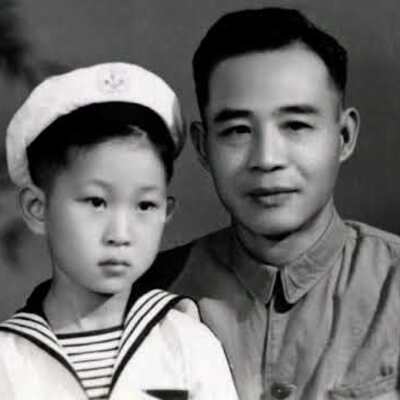
Storm under the Sun
In May 1955, Mao Zedong launched a nationwide campaign to “purge the counterrevolutionary clique of Hu Feng,” which is widely regarded in academic circles as the first large-scale Literary inquisition after the founding of the People's Republic of China.
Hu Feng, the central figure of the campaign, was a poet, critic, and translator. Inspired by Lu Xun, who was regarded as the most influential Chinese writer associated with the May Fourth Movement, Hu devoted himself to the revolution in pursuit of people's liberation. Considered the successor of Lu Xun's New Literature Movement, he was the head of the propaganda of the League of Left-Wing Writers, and founded the magazines July and Hope, through which he trained a large number of progressive left-wing poets and writers.
However, Hu became a target of Mao Zedong's campaign because he upheld the critical spirit of Lu Xun and insisted that writers should be independent rather than mouthpieces of the Communist Party. According to official statistics, during the campaign against Hu Feng, 92 people were arrested, 62 were subjected to solitary confinement, 73 were suspended from their jobs, and 2,100 were implicated. Although only three people, including Hu Feng, were formally sentenced, many labeled key Hu Feng elements endured decades of imprisonment and reeducation through labor.
Director Peng Xiaolian's father, Peng Baishan (then a member of the League of Left-Wing Writers and head of the propaganda of the Shanghai Municipal Party Committee), was also subjected to severe persecution, and in 1968 was beaten to death for being the “spokesman of the Hu Feng counterrevolutionary group within the Party. Starting in 2003, Peng Xiaolian and S. Louisa Wei visited more than 20 survivors of the anti-Hu Feng campaign. They also spent more than five years filming and producing Storm under the Sun. Through audio recordings of Hu Feng, interviews with survivors, family members of the victims, and scholars, the film presents from beginning to end how the anti-Hu Feng campaign unfolded, as well as the immense physical and psychological trauma that it imposed on the victims and their families.
As the first film to document the anti-Hu Feng campaign, Storm under the Sun tells the stories of these lesser-known left-wing poets and writers and how they participated in the revolution through their literary work. At the same time, the film demonstrates how the multiple political campaigns against intellectuals during the Mao era were one and the same, unified under the overarching goal of controlling thought and eradicating dissent.
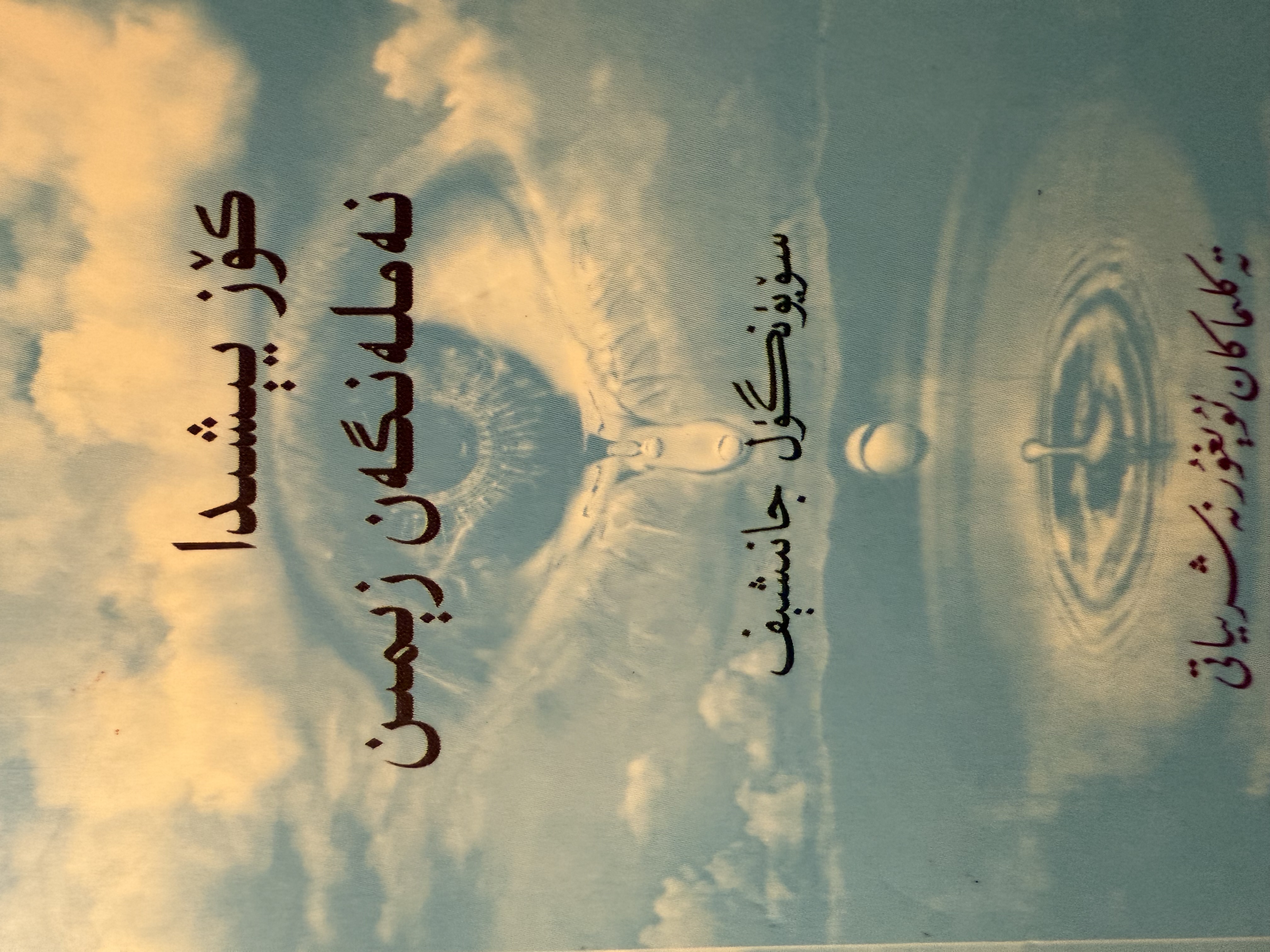
Köz Yéshida Nemlen'gen Zémin/The Land Drenched in Tears
(English follows) Bu kitab muhajirettiki Uyghur jem’iyitide nisbeten baldur neshir qilin’ghan, shundaqla Uyghur ziyaliylirining kommunist Xitay hökümranliqi astidiki paji'elik kechürmishlirini inchike détallar bilen teswirlep bergen edebiy xatire sheklidiki eslimidur. Téximu éniqraq qilip éytqanda, bu kitabta aptorning charek esirlik ré'al kechürmishliri asasiy liniye qilinip, 1957-yilidin 1982-yilighiche bolghan 25 yil jeryanida Sherqiy Türkistan (Shinjang)diki Uyghur istudéntlarning boran-chapqunluq sergüzeshtiliri we tragédiyelik teqdiri yorutup bérilgen.
1957-Yili Séntebirde emdila 17 yashqa kirgen Söyün'gül Chanishéf (aptor) Shinjang Méditsina Inistitutigha qobul qilinidu. Bu pütün Xitay miqyasida Maw Zédung bashlatqan «échilip-sayrash» dolquni emdila axirliship, «istil tüzitish» herikiti bashlanghan, Shinjang Uyghur Aptonom Rayonida «yerlik milletchilikke qarshi heriket» élip bérishning teyyarliqi jiddiy élip bériliwatqan mezgiller idi.
Söyün'gülning siyasiy dolqunlar ichide bashlanghan aliy mektep hayati uning kéyinki teqdiride oylap baqmighan qarangghu sehipilerni achidu. U Méditsina Inistitutidiki bashqa Uyghur sawaqdashliri bilen birlikte siyasiy jehette «échilip-sayrash»qa, «istil tüzitish» yighinlirigha qatniship, kompartiye heqqidiki pikir-qarashlirini ochuq otturigha qoyushqa mejbur qilinidu. Yashliq bahari urghup turghan, kelgüsige ümid bilen qarighan, emma siyasiy boran-chapqunlarda téxi pishmighan bu bir türküm sap-sebiy we qizghin oqughuchilar köz aldidiki rehmisiz siyasiy ré'alliqtin qattiq ümidsizlinidu. Sabiq Sowét Ittipaqi modélidiki ittipaqdash jumhuriyetlik aliy aptonomiye tüzümini Xitaydiki Uyghur, Tibet, Mongghul qatarliq az sanliq milletlerning aliy aptonomiye hoquqining tüp kapaliti dep bilgen bu yashlar, Xitay kompartiyesining Xitayche uslubtiki «milliy téritoriyelik aptonomiye tüzümi»din qattiq narazi bolidu. Ular, Shinjangda ölke derijilik atalmish «Shinjang Uyghur Aptonom Rayoni» emes, belki Sowét Ittipaqi modélidiki «Sherqiy Türkistan/Uyghuristan Ittipaqdash Jumhuriyiti» qurulushi kérek, dep qaraydu. Ularning «échilip-sayrash» yighinlirida dadilliq bilen otturigha qoyghan bu pikir-telepliri, kéyinche ularning siyasiy jehettiki qéchip qutulalmas éghir jinayiti bolup qalidu.
Shuningdin kéyinki polat tawlash, chong sekrep ilgirilesh, yerlik milletchilikke qarshi heriket jeryanida Söyün'gülni öz ichige alghan yerlik millet oqughuchiliri qattiq tenqid we teqipke, siyasiy bésim we rohiy azablargha duch kélidu. Acharchiliq yillirining éghir riyazetlirini béshidin ötküzidu. Xitay kompartiyesining az sanliq milletlerge qaratqan aldamchiliq siyasiti we saxta aptonomiyesining mahiyitini chongqur chüshinip yétidu. Netijide ularda mexpiy teshkilat qurup, yer asti siyasiy küresh pa'aliyetliri bilen shoghullinish; kéyinche shara'it piship yétilgende yerlik xelqni qozghap keng kölemlik milliy azadliq sépi shekillendürüsh; Xitay mustemlikisidin qutulup, Sherqiy Türkistanning musteqilliqini qolgha keltürüshtek siyasiy ghaye hem pikir birliki hasil bolidu. Ular 1962-yili 2-ayning 5-küni Shinjang Méditsina Inistitutining oqughuchilar yataq binasida mexpiy yighilip, «Sherqiy Türkistan Méhnetkesh Xelq Partiyesi» namliq siyasiy teshkilat quridu. Söyün'gül Chanishéf bu teshkilatning katipliq wezipisini öz üstige alidu. Halbuki, aridin birqanche ay ötmeyla Xitay Jama'et Xewpsizlik organlirining oqughuchilar arisigha mexpiy orunlashturghan jasuslirining uchur yetküzüshi bilen bu teshkilat pash bolup qalidu. Shu yili 4-ayning 29-küni Söyün'gül Chanishéfni öz ichige alghan nechche onlighan Uyghur oqughuchilar qolgha élinidu.
Shuningdin bashlap Söyün'gül we uning sawaqdashlirining uzun yilliq türme we mejburiy emgek hayati bashlinidu. Ürümchi türmisidiki 4 yilgha sozulghan qiyin-qistaq we qarangghu türme hayatidin kéyin, Söyün'gül we uning türmidishi Sajide Ürümchi etrapidiki emgek bilen özgertish lagérida mejburiy emgekke sélinidu. Bu jeryanda insan tesewwur qilghusiz teqip we qiyin-qistaqlargha, künige on nechche sa'etlik éghir emgekke, achliq we rohiy azablargha duch kélidu. Medeniyet Inqilabi bashlinishi bilen ularni téximu éghir qismetler kütiwalidu. Söyün'gül «siyasiy jinayetchi» dégen qalpaq bilen Ürümchi etrapidiki bir xelq kommunasigha yerleshtürülüp, ammining nazariti astida éghir emgek arqiliq özgertishke tapshurup bérilidu. U bu yerde türmidinmu better qiyin künlerge duch kélidu. Rohiy we jismaniy jehettin qattiq xorlinidu. Uzun yilliq türme, mejburiy emgek we qiyin-qistaq Söyün'gül Chanishéf we uning tutqundiki sawaqdashlirini öz ichige alghan bir ewlad Uyghur yashlirining yashliq baharini, arzu-armanlirini, ghaye we intilishlirini xazan qilidu. 1976-Yiligha kelgende Xitay kompartiyesining aliy rehbiri Maw ölüp, «Medeniyet Zor Inqilabi» axirlashqan, 1978-yili kommunist Xitayning milletler siyasitide «yumshash» bashlanghan bolsimu, emma Söyün'gül Chanishéf qatarliq «siyasiy jinayetchi» qalpiqi kiydürülgen bir ewlad Uyghur oqughuchilarning délosi hel bolmaydu. 1980-yillarning bashlirigha kelgende, Xitayning siyasiy atmosférasida körülgen «islahat» we «ishikni échiwétish» dolqunidimu héchqandaq siyasiy kengchilikke érishelmigen Söyün'gül pütün a'ilisi bilen birlikte tughulup ösken yurtini tashlap Awstraliyege köchmen bolup kétidu. Shundaq qilip, Söyün'gülning Sherqiy Türkistandiki 18 yilliq türme we tutqunluq hayati axirliship, erkin dunyadiki kéyinki hayati bashlinidu.
Bu eslime aptor Söyün'gül chanishéfning muhajirettiki hayati dawamida eyni waqittiki kündilik xatirisi bilen türme xatirilirini retlesh, toluqlash, qayta eslep yézish arqiliq wujutqa chiqqan. Pütün kitab 700 betke yéqin uzun sehpidin teshkil tapqan bolup, tili addiy, uslubi yenggil we güzel, hékaye weqeliki jiddiy we jelp qilarliq shekilde yézilghan. Bu kitab peqet aptorning béshidin köchürgen shexsiy kechürmishlirining addiy bayani bolupla qalmastin, belki 1950-yillarning axiridin 1980-yillarning bashlirighiche bolghan bir ewlad Uyghur istudéntlirining boran-chapqunluq kolléktip hayati we Uyghur ziyaliylirining kommunist Xitay réjimi astidiki paji'elik teqdirining janliq örnikidur.
Aptor kitabning bash qismigha yazghan kirish sözide, «musteqilliq arzusi bilen teshkilat qurup qolgha élin’ghan hemde türme we nazaret astida yashighan 18 yilliq hayatimdin qisqiche xatire qaldurup, yoshurun saqlap kelgen idim. Shu xatirige asasen bu kitabni yézip chiqtim. Bu kitabtiki weqelerning hemmisi béshimdin ötken, öz közüm bilen körgen hem anglighan heqiqiy ishlardur» dep yazghan. Istanbul Uniwérsitétining Uyghur proféssori Sultan Maxmut Qeshqeri bu kitabqa yazghan béghishlimisida «<köz yéshida nemlen'gen zémin> namliq bu kitabta yézilghan weqeler toqulma hékayiler we xiyaliy épizotlar bolmastin, hemmisi Söyün'gülning béshidin ötken we öz közi bilen körgen rast weqelerdur. Bu kitabta kommunist Xitay hakimiyitining Sherqiy Türkistanda yürgüzgen insan qélipidin chiqqan wehshiy siyasetliri emeliy pakitlar bilen chongqur pash qilinghan, bolupmu Maw Zédung bashlatqan <Medeniyet Inqilabi>ning dehshetlik menzirisi de dölet térori nahayiti janliq ipadilep bérilgen» dep yazghan.
Bu kitab 2006-yili Istanbuldiki Teklimakan Uyghur Neshriyati teripidin birinchi qétim neshir qilin’ghan. Kitab muhajirettiki Uyghur oqurmenliri arisida zor tesir peyda qilghan we bazarliq kitabqa aylanghan. 2015-yili yuqiri tiraj bilen ikkinchi qétim bésilghan. 2018-Yili in'gilizchigha terjime qilinip, En'giliyede neshir qilinghan.
<i>The Land Drenched in Tears</i> is the one of the earliest literary memoirs published in the Uyghur language within the diaspora community, detailing the experiences of Uyghur intellectuals under Chinese Communist rule. The book, written by Söyüngül Chanisheff, chronicles the turbulent experiences and tragic fate of Uyghur students in East Turkistan (Xinjiang) during the 25 years from 1957 to 1982, centered around the author’s quarter-century of real-life experiences.
In September 1957, Söyüngül, who had just turned 17, was admitted to Xinjiang Medical Institute. This was a time when Mao Zedong’s Hundred Flowers Campaign had just ended nationwide, the Rectification Movement had begun, and the Xinjiang Uyghur Autonomous Region was intensively preparing for the Anti-Local Nationalism Campaign. Along with other Uyghur classmates at the Medical Institute, Söyüngül was forced to participate in political “speaking out” meetings–when people were encouraged to voice criticism about the Communist Party. However, their bold views and demands expressed during these “speaking out” meetings later severe criticism, persecution, political pressure, and psychological torment during the Anti-rightist Campaign.
On February 5, 1962, they secretly gathered in a student dormitory at Xinjiang Medical College and established the East Turkistan Working People’s Party, with the political ideal and common goal of freeing themselves from Chinese rule and achieving independence for East Turkestan. Söyüngül Chanisheff served as the organization’s secretary. Just months later, due to an informant placed among students by Chinese security forces, the organization was exposed. On April 29 the same year, dozens of Uyghur students, including Söyüngül, were arrested.
In the subsequent years, Söyüngül went through imprisonment, as well as forced labor at labor camp and a people's commune, where she suffered severe physical and psychological damage.
Although Mao died in 1976, ending the Cultural Revolution, and China’s ethnic policies began to soften in 1978, cases like Soyungül’s were never rehabilitated. By the early 1980s, even amidst China’s reform and opening political atmosphere, Söyüngül —still denied any political clemency—eventually left her homeland with her family and emigrated to Australia.
This memoir was created during the author’s life in exile, based on her contemporary diaries, reorganized prison notes, and reconstructed memories. The nearly 700-page book is not merely a simple account of the author’s personal experiences, but also serves as a vivid portrayal of the turbulent collective life of a generation of Uyghur university students from the late 1950s to early 1980s, and the tragic fate of Uyghur intellectuals under the Chinese Communist regime.
The book was first published in 2006 by Taklamakan Uyghur Publishing House in Istanbul. It had a significant impact among diaspora Uyghur readers and became a bestseller. A second edition with higher circulation was published in 2015, and an abbreviated English translation was published in the UK in 2018. <a href="https://www.foyles.co.uk/book/the-land-drenched-in-tears/s-y-ng-l-chanisheff/9781910886380">The English edition can be purchased here</a>.
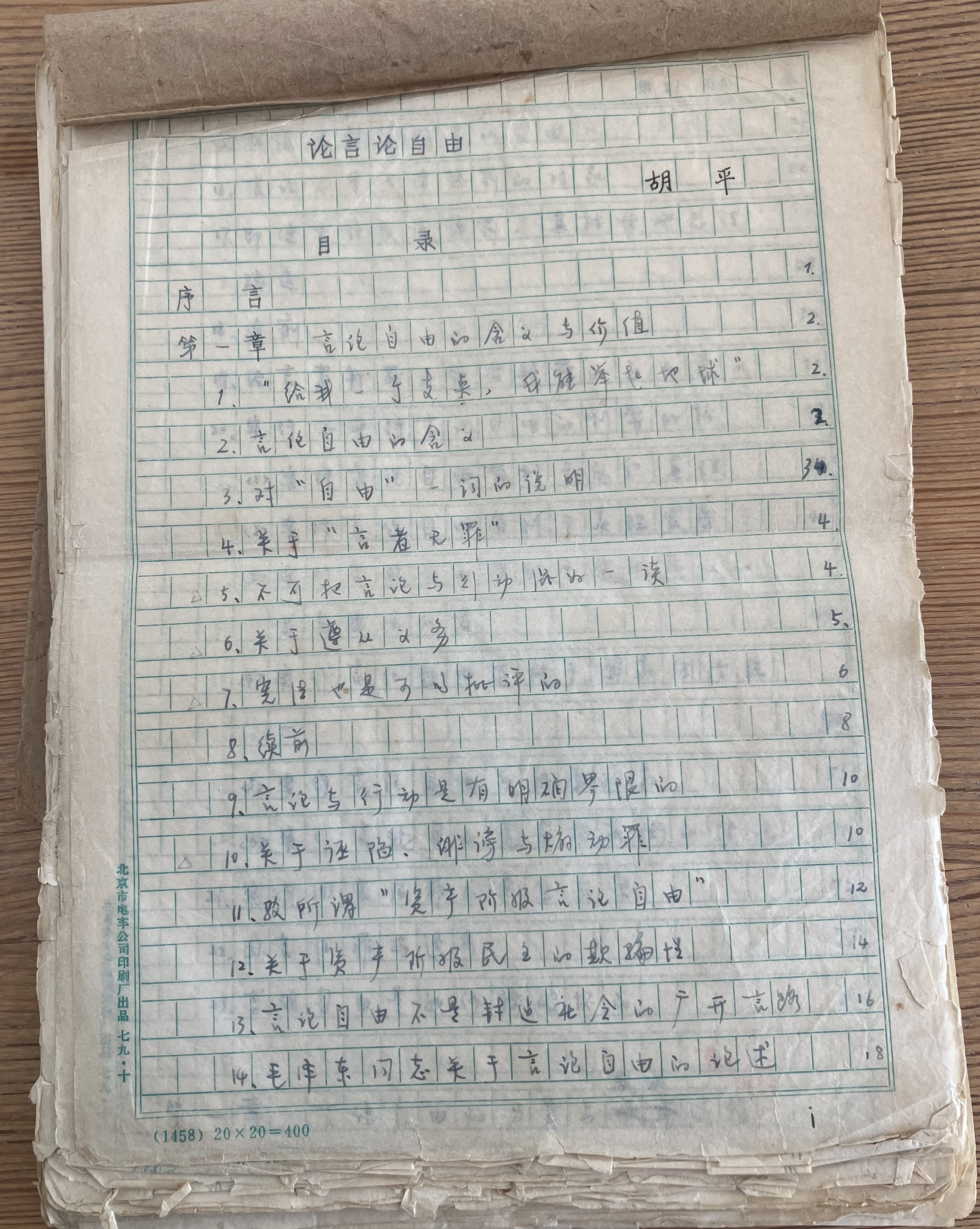
“The yearning for freedom is born from pervasive oppression”—Hu Ping on his 1980s essay, “On Freedom of Speech”
The China Unofficial Archives Interview Series No. 1
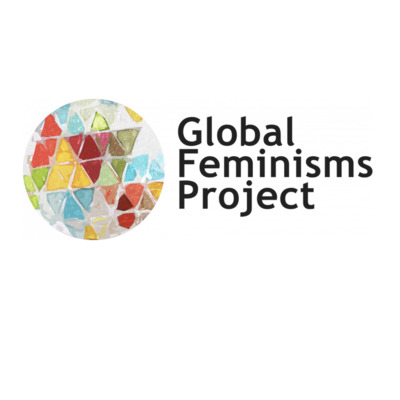
Global Feminisms Project: China Interviews
The Global Feminisms Project, hosted by the University of Michigan, archives oral history interviews with individuals who identify themselves as working on behalf of issues related to women and gender in different national contexts. The goal of the project is to encourage teachers and researchers to study issues related to the many forms of feminist or women’s movement activism in general, as well as activism on behalf of particular issues.
Beyond that, this project is also a useful resource for general readers who are interested in learning more about the history of feminist movements around the world. Interviewees describe their lives, their views, and their activism in considerable detail. The project offers the unedited interviews as primary sources for understanding the history of activism in all its complexity and variation.
The project covers 14 countries, including China, with each having a dedicated site. According to introductions by Wang Zheng, then a professor at University of Michigan’s Institute for Research on Women and Gender, the China Interviews took place in two phases.
In the first, the interviews illustrate the multi-dimensional development of feminist practices in China’s transformation from a socialist state economy to a capitalist market economy from the mid-1980s, when spontaneous women’s activism emerged. Situating such development in the context of both global capitalism and global feminisms, especially in the context of the Fourth UN Conference on Women (FWCW) when Chinese feminists came into direct contact with global feminisms, the interviews, conducted in the early 2000s, explore the cultural, social, and political meanings of Chinese feminist practices. They illustrate how official, non-official, domestic, and overseas Chinese women activists expressed diverse visions of gender equality, even engaging in struggles over the very word “gender.”
These interviews reflect the scope and complexity of the contemporary Chinese women’s movement. Feminist activists include women leaders from diverse groups, such as Ge Youli, who was involved as a young leader in various urban based organizational activities funded by international donors to disseminate feminist ideas; Zhang Lixi, Vice President of the Chinese Women’s College that affiliates with the All-China Women’s Federation, who has promoted women’s studies in her college; Ai Xiaoming, prominent feminist scholar and activist; and Gao Xiaoxian, who holds an official position in the Shaanxi Women’s Federation while creating several women’s organizations outside the official system to engage in legal services for women, anti-domestic violence movements, and issues of gender and development.
In the second phase, five interviews of a younger cohort of Chinese feminists record the rapidly contracted public space for NGO activism in China since the second decade following the FWCW and severe surveillance by the state over feminist activities initiated by autonomous feminist groups and individuals. They also provide powerful testimonies to tremendous creativity, perseverance and courage demonstrated by young feminists who in many cases are making a precarious living in the private sector without much resource for their feminist activism.
<a href=”https://sites.lsa.umich.edu/globalfeminisms/interviews/china/”>The China site</a> provides videos and transcripts of the interviews (both in Chinese and English). In addition to the interviews, the archive also provides maps, statistics, a timeline, podcasts and other resources to assist understanding of the context in which the activists carried out their work.

Our Stories: Women in COVID-19 in China
This is the fourth issue of the “Our Stories” series published by WeChat public account “We and Equality,”, a compilation of 20 oral narratives from Chinese people who lived through the COVID-19 pandemic firsthand, and a personal reflection by the author of this issue, Qiao Yilin. The editors hope to “document the history of ordinary people, to combat the forgetting that should never have happened, and to present the real experiences, feelings, and voices of all of us–to help us remember what has happened to us.”
The interviewees in this volume are diverse, including those of different ages, educational background, ethnicities, physical and mental status, sexual orientations,marital status, and mobility. They shared their own memories of the pandemic, including facing threats to their survival due to food shortage, not being able to take anti-depression medication due to the lockdown, international students having a hard time returning to China, people with hearing impairments facing various inconveniences, and the discrimination faced by those who had recovered from COVID-19Although primarily focusing on experiences and feelings during the pandemic, many interviewees shared additional personal stories that provided useful background information for readers to understand their situation during the pandemic.
In addition to these personal narratives, “We and Equality” also published a 44-question “Women's Mental Health Questionnaire” on WeChat, asking about respondents’ experience during the pandemic, including their sense of belonging, care/housework commitments, sleep quality, emotional and mental status, feeling about quarantine, lockdown, illness or death of loved ones, and attitudes towards the government’s COVID-19 policies. The questionnaire received a total of 453 valid responses. Based on the responses, “We and Equality” has compiled a bilingual data analysis report.
”We and Equality" is a grass root project started in November 2016. Through the WeChat public account, they publish articles weekly to raise awareness and share knowledge on gender-related issues in China. They also organize in-person activities bi-weekly where people gather for in-depth discussion, and foster a community to promote gender equality.

#MeToo in China Archives 2018.1-2019.7
On New Year's Day 2018, Beihang University graduate Luo Xixi took the lead in breaking China's silence on the issue of sexual harassment when she publicly reported on social media that Beihang professor Chen Xiaowu had sexually harassed her. This was the first major event in China’s #Metoo movement, which has since spread from colleges and universities to other fields. #Metoo provoked an unprecedented discussion in China, and the issues of feminism and sexual harassment attracted a rare and widespread attention, with a variety of complaints, comments, studies, and advocacy articles springing up all over the internet.
<i>#MeToo in China Archives 2018.1-2019.7</i> is a compilation of sexual harassment-related articles written between January 2018 and July 2019. This archive is massive, totaling more than 2,500 pages, and is divided into three main volumes: “#Metoo in Higher Education”, “#Metoo in other fields”, and “#Metoo discussions’. Volume I and Volume II consist of individual #Metoo cases, arranged in chronological order. Articles in volume 3 can be broadly categorized into general reviews, investigative reports, personal stories, advocacy and activism, tools and resources,etc. During the #Metoo movement, many liberal public intellectuals questioned the movement, likening it to big-character posters during the Hundred Flowers campaign, and arguing that it might lead to the proliferation of wrongful convictions. It triggered heated debates, and this archive also contains a number of related articles.
The process of compiling this archive itself became an act of resistance, given the severe repression on freedom of expression and social movements. The editorial team faced tremendous challenges in collecting articles that had been deleted or published as images to bypass online censorship. It spent a great deal of time and personnel piecing together scraps of information and transcribing words in images. Reading traumatic personal stories - including those about the hardships in seeking remedies - caused psychological trauma for the editors themselves.
Nevertheless, #Metoo has also a process of collective healing, in which women with shared experiences saw each other, realized the structural problems behind sexual violence, and gained the strength to move on and push for change. Finally, during the compilation process, the editorial team also benefited from archiving efforts made by other websites and individuals, demonstrating that the rescue and preservation of people’s history is a collective and collaborative task.
This archive is published on https://chinesefeminism.org/.
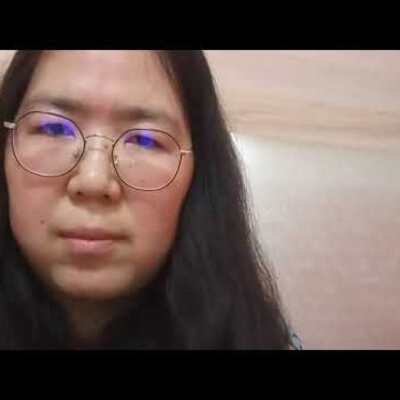
Zhang Zhan Video Series of COVID-19 Outbreak in Wuhan
On 23 January 2020, the Chinese government imposed a lockdown in Wuhan. On February 1, Zhang Zhan took a train from Shanghai to Wuhan. From then until her arrest by the Shanghai police on May 14, Zhang Zhan continued to document the situation in Wuhan on video at the frontline of the pandemic. On February 7, she launched a YouTube channel under her real name and released her first video, “Claiming the Right to Freedom of Expression,” in memory of Dr. Li Wenliang and in solidarity with citizen journalists Chen Qiusi and Fang Bin, who had been taken away for reporting on COVID-19. She said in the video: “If Chinese citizens still do not have the right to freedom of expression,then we are all Li Wenliang." On the same day, Zhang Zhan received a phone call from Shanghai's state security agency threatening to quarantine her if she continued to speak out online, but she did not give in. By the time she was arrested, Zhang Zhan had posted 122 videos on <a href=”https://www.youtube.com/@%E5%BC%A0%E5%B1%95-y3p/featured”>her YouTube channel</a>. In her videos, she traveled around Wuhan at the height of COVID-19, documenting empty streets, the roar of funeral home incinerators late at night, the desperation of patients with no place to turn for medical care, the arbitrary deprivation of residents’ freedom of movement, and the chaotic and hypocritical nature of government policies. These videos show the world the reality of Wuhan in the early days of the outbreak, making thema precious historical record.
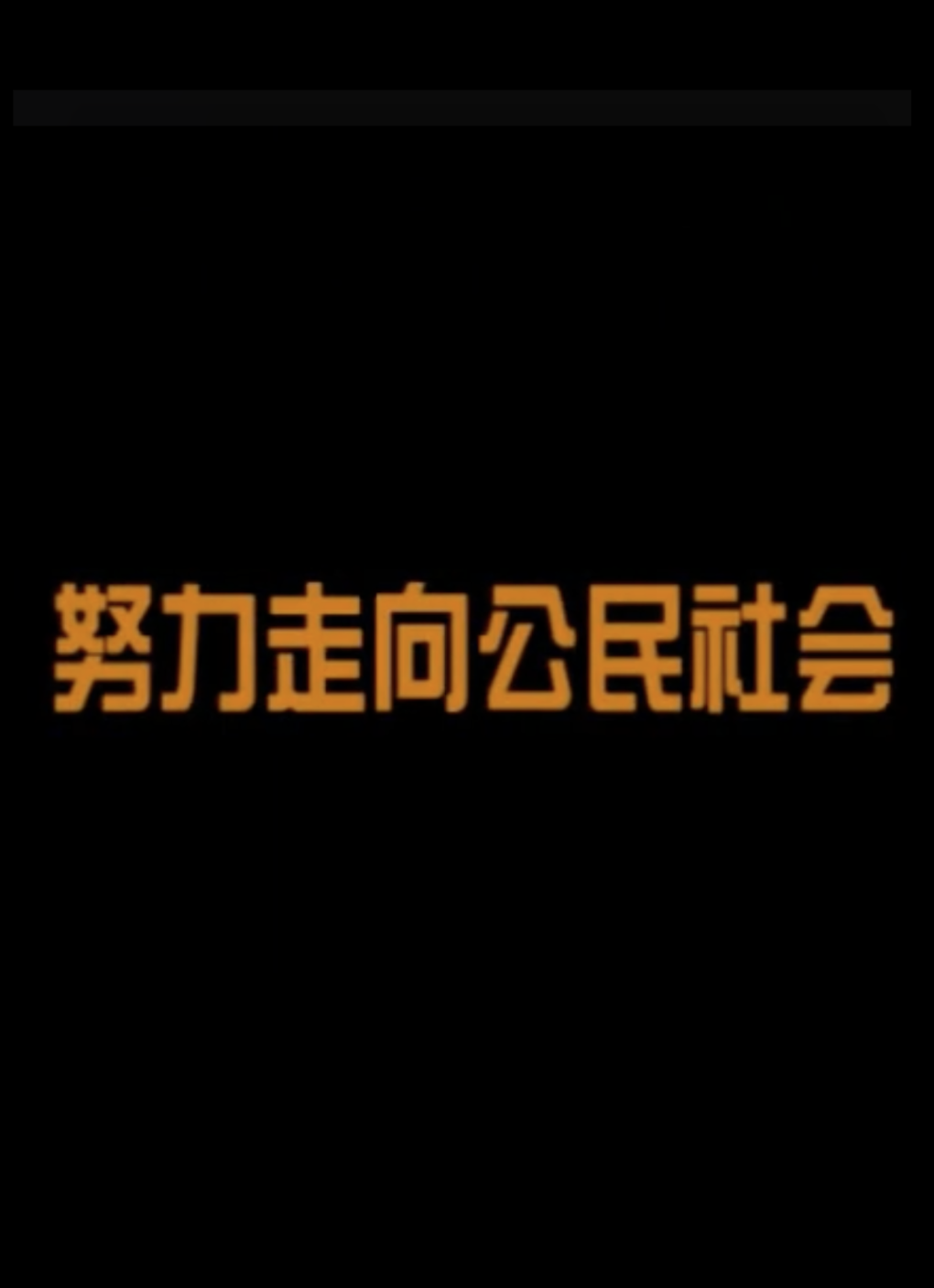
Working toward a Civil Society
How can China build a real civil society? Since 2010, independent director Tiger Temple sat for a series of interviews with scholars and civil society actors.

My Life: China's Direction
When the Cultural Revolution broke out, Yang Xiaokai was a senior high school student at No. 1 Middle School in Changsha. On January 12, 1968, he published an article entitled "Where is China Going?" which systematically put forward the ideas of the "ultra-leftist" Red Guards, criticized the privileged bureaucratic class in China, and advocated for the establishment of a Chinese People's Commune based on the principles of the Paris Commune. Yang Xiaokai recalled that his parents were beaten because they sympathized with Liu Shaoqi's and Peng Dehuai's views, and that he was discriminated against at school and could not join the Red Guards. As a result, he joined the rebel faction to oppose the theory of descent. Yang Xiaokai was later sentenced to 10 years' imprisonment for this article. Yang Xiaokai died in 2004. This article is a retrospective of his life.

Fifty Years of the Chinese Communist Party
The author Wang Ming was an early member of the Communist Party of China (CCP) and the first of the "28 and a half Bolsheviks," who lost power after the Yan'an Rectification and were gradually marginalized by Mao. After the Yan'an Rectification, the Internationalists, led by him, lost power in the party. He was gradually ostracized by Mao Zedong, who expatriated him to the Soviet Union in 1956. In his book, Wang Ming recounts his decades-long feud with Mao. It provides a fascinating insight into the early history of the CCP.
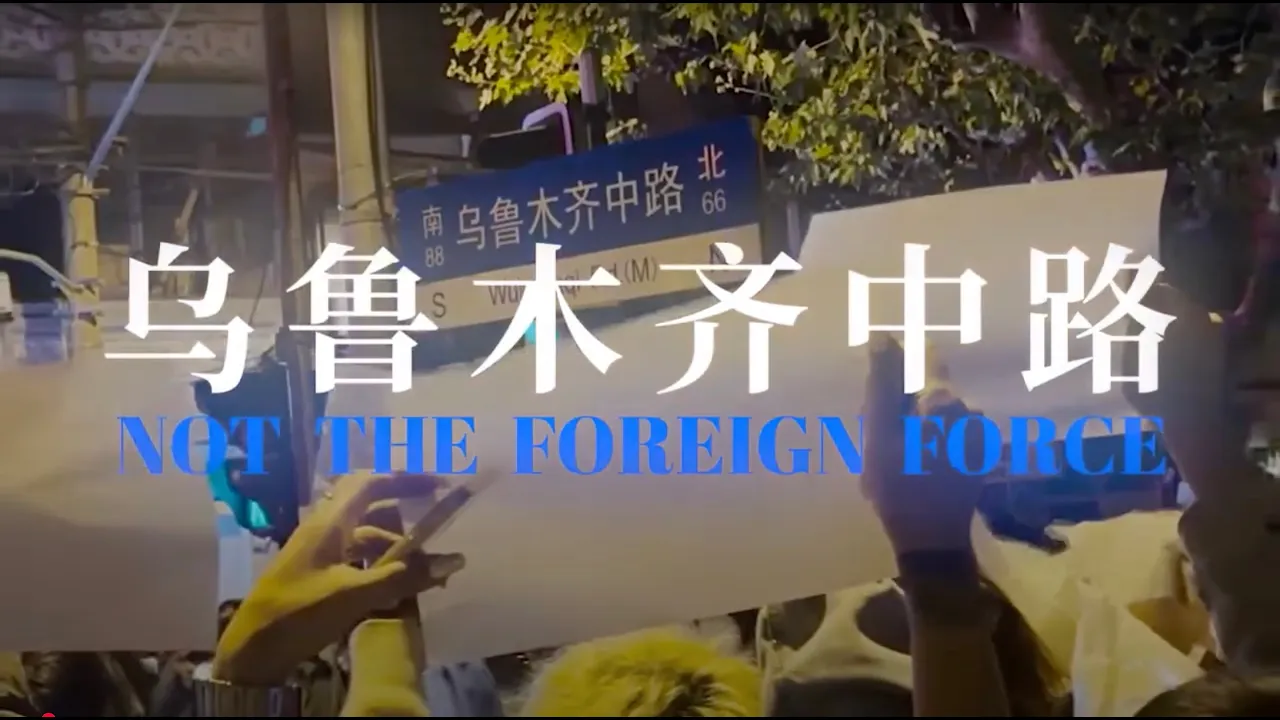
Not the Foreign Force
During the three years of the "zero-COVID" policy enforced by Xi Jinping's government, the daily life and freedoms of the people were severely limited. A fire in Urumqi, Xinjiang, finally ignited public dissatisfaction with the measures. On November 26, 2022, when the people of Shanghai spontaneously gathered in the streets to mourn the victims of the fire, no one expected that this memorial activity would lead to nationwide protests against the pandemic policies. At the scene, Chen Pinlin and his girlfriend, Wang, filmed many protest videos at the protest site on Urumqi Middle Road in Shanghai.
In November 2023, on the anniversary of the White Paper Movement, Chen Pinlin uploaded the documentary to YouTube and other social media platforms, garnering hundreds of thousands of views. Less than a week later, he and his girlfriend were arrested. His girlfriend was released on bail, while Chen Pinlin remained in custody.
<a href=“https://tenchu.org/pocd/public/pocs/3551”>Chen Pinlin introduced the documentary as follows</a>: "I am the director Plato. In November 2022, I personally participated in the protest on the night of November 26 in Shanghai. This was my first involvement in a political event in China, and it was also the first time I expressed my political demands in China. Besides the footage I personally filmed on that day, the film also includes iconic video materials from before and after the protest. I tried to present a complete picture of how the dynamic zero-COVID policy pushed China to the boiling point and prompted people to take to the streets to protest. After the event, the Chinese government distorted the facts and maliciously smeared the protests in Shanghai and the White Paper movement, misleading many people into thinking that the protests were the work of foreign forces. But is this really the case? On the first anniversary of the Shanghai Urumqi Road protest, I created this documentary, “Urumqi Middle Road”, to record my personal experience and feelings of participating in the protest. I want to explore why, when internal contradictions appear in China, foreign forces are always blamed? Everyone knows the answer. The more the government misleads, forgets, and shields the truth, the more we must speak out, remind people, and remember. Remember the White Paper, remember November 26, remember Urumqi Middle Road, remember the Xinjiang fire, remember the Guizhou bus, remember dynamic zero-COVID, remember the 'big white' (the white-suited workers), remember Tiananmen, remember the Cultural Revolution, remember the Three Years of Great Famine. "By remembering the ugliness, we can turn our hearts toward the light. I also hope that China can soon embrace its own brighter future."
At the end of this movie, Chen left this narration: Some people say, what is the point of protesting on the streets? In the end, it's still the same, suppressed, shielded and misinterpreted. But as Churchill said, ‘Courage is the most important human trait, with courage, other human traits can naturally be possessed' We lacked experience and have been cowardly and wavering, but today we have the courage to stand up and to speak out. What we lacked this time, we can do better next time. If I were to do it again, I would still choose to be there. Because a government that is afraid of even a white paper can't defeat the justice in the hearts of the people.
On January 5, 2024, Chen Pinlin was formally arrested on suspicion of "picking quarrels and provoking trouble" and detained at Baoshan District Detention Center in Shanghai. On January 6, 2025, Chen Pinlin’s first trial was held in the Third Court of Baoshan District Court, where he was sentenced to 3 years and 6 months in prison. His sentence will end on May 27, 2027.

Working Toward a Civil Society (Episode 33): Sha Yexin
How can China build a true civil society? Since 2010, independent director Tiger Temple has conducted a series of interviews with scholars and civil society participants.

Remembering Lin Zhao
Independent director Tiger Temple began shooting this film in 2010 and completed it in 2012, with subsequent revisions. The film features interviews with Lin Zhao's former lover Gan Cui as well as interviews with several independent scholars such as Qian Liqun and Cui Weiping. It is a powerful addition to Lin Zhao's memory. This film was selected as one of the top 20 finalists in the 2012 Sunshine Chinese Documentary Awards.

